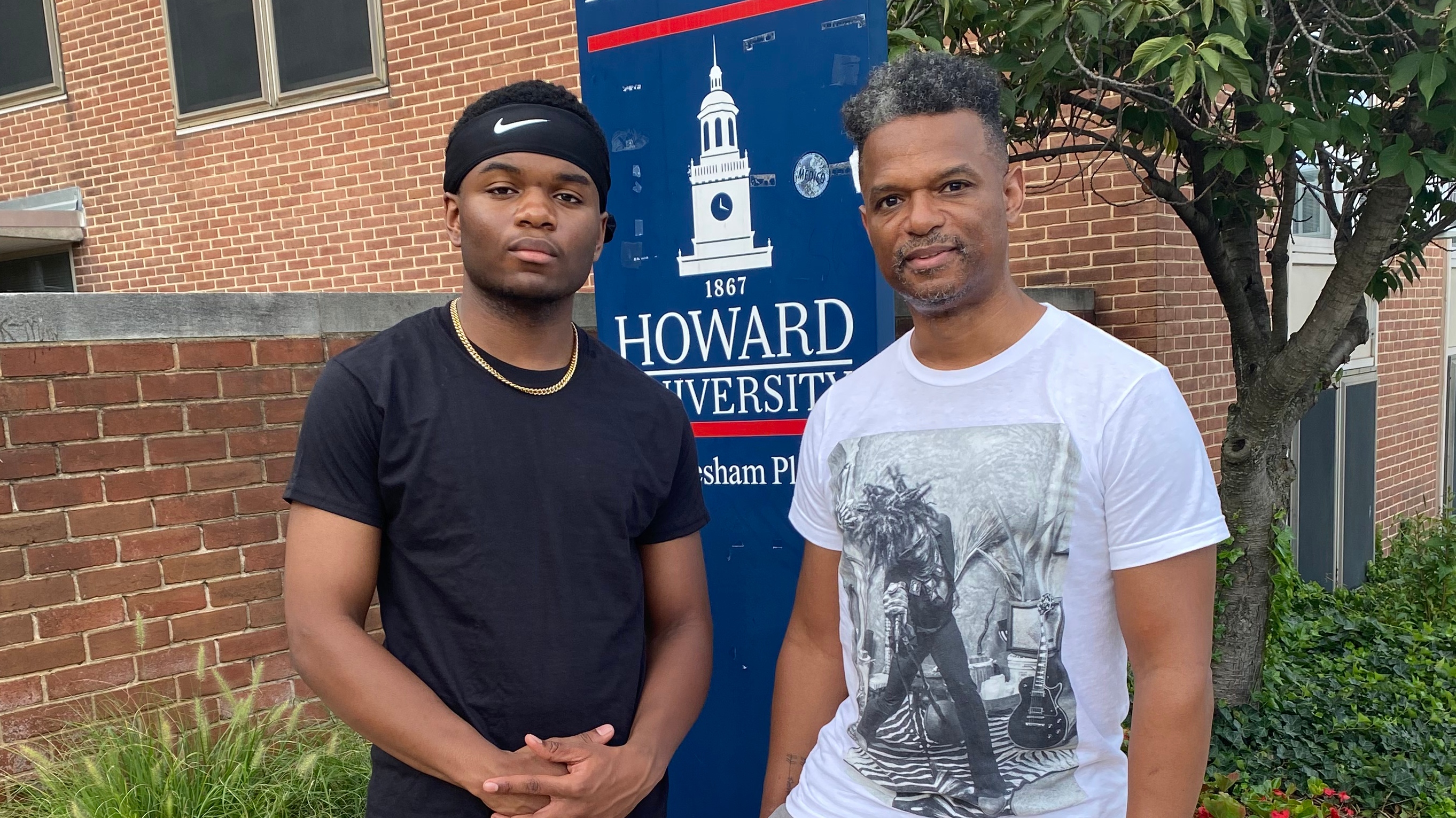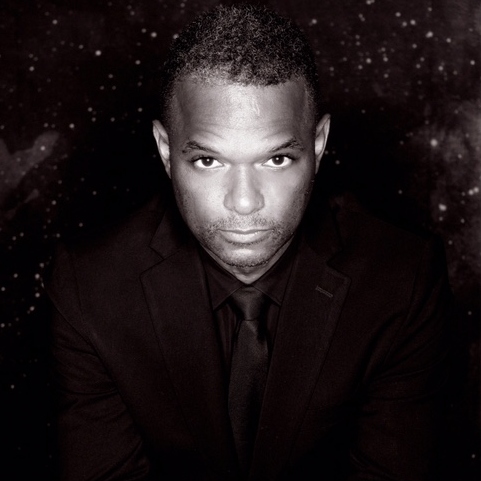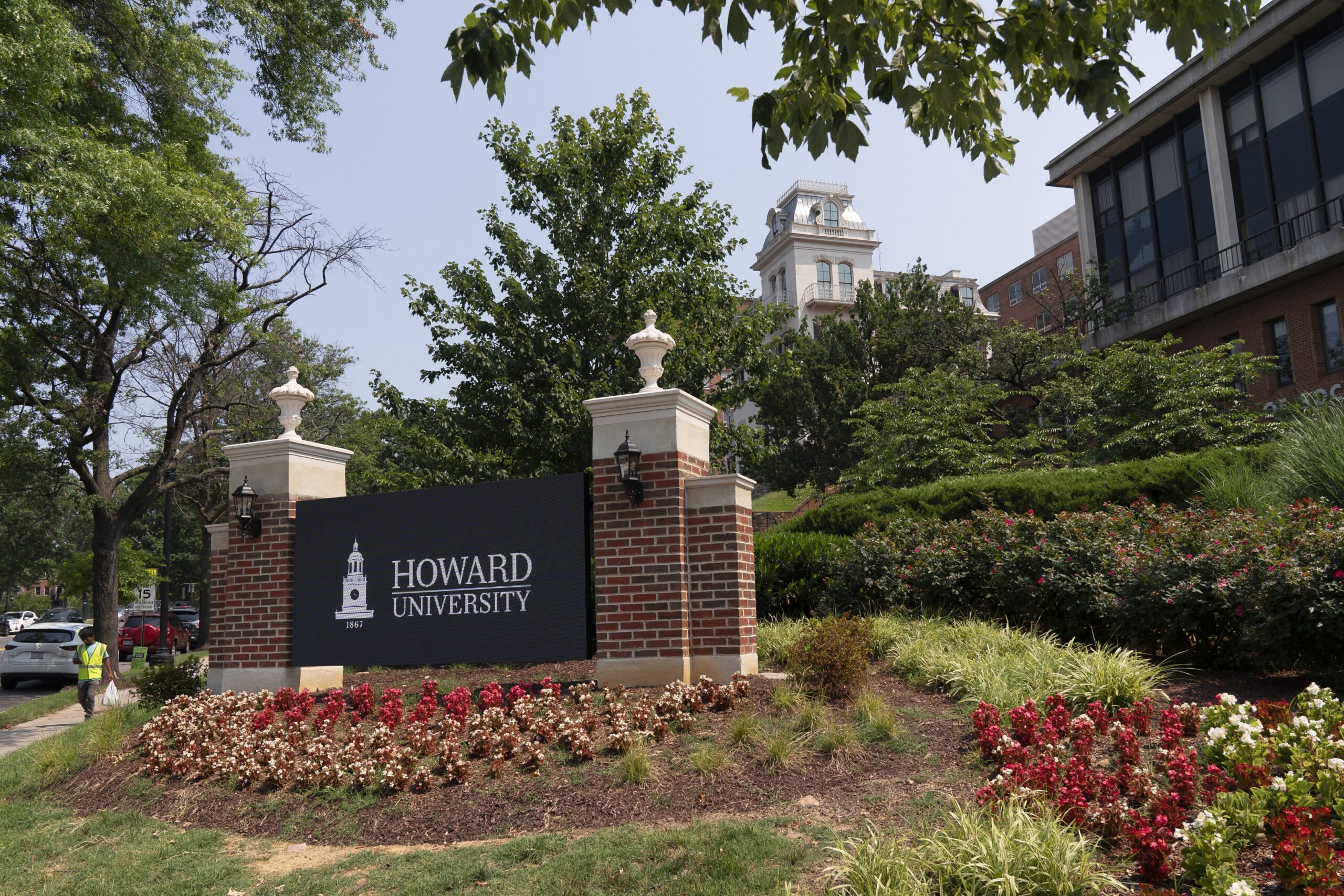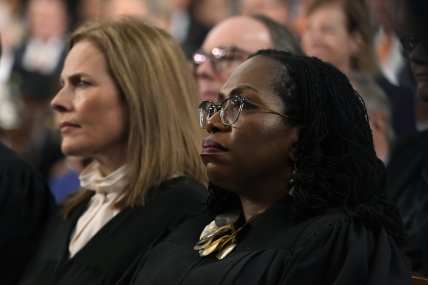A ‘Mecca’ of opportunity: What I learned during my son’s college admissions process
For writer Miles Marshall Lewis, the college admissions process resulted in sending his son to excel at an HBCU. It also meant letting him forge his own path.
In February 2023, my oldest son rocked a heather gray Morehouse hoodie from last year’s Ralph Lauren drop to let his classmates know he’d just been accepted to his dad’s acclaimed alma mater. I discovered his admittance first, checking his college admissions portal in the middle of the night. My wife called him first thing in the morning to say “félicitations” before he’d even heard the news. More bleary-eyed than teary-eyed, he shot a selfie showing off his digital letter on an iPad that morning before heading off to school. Months of stressful referral letters, SAT scores, application waivers and more had finally paid off. Six months later, we settled him into his dorm room … at “the Mecca” of Howard University.
WTF?

To back up a bit, the whole college admissions process circa 2023 felt surprisingly different and mysterious to me compared to my own experience in the late 1980s. My son wouldn’t be a first-generation college student; I’d marched across Morehouse’s stage with my sociology degree in hand during the early ’90s, while his mother graduated from a prestigious culinary school in Paris. But as he entered his senior year, I still found myself reading “Game On: Why College Admission Is Rigged and How to Beat the System” cover to cover, confronting that the last time I’d dealt with jumping through all these hoops was in a whole different millennium. What was Common App? Did colleges seriously not care about the SAT anymore — Was that for real?
The only thing my mom has ever apologized to me for was letting me deal with my college applications solo, aside from paying for them all. The near-simultaneous launches of NBC’s college-based “A Different World” and Spike Lee’s “School Daze” were far more influential in my choice to apply to HBCUs than any guidance counselor. The fictional Hillman and Mission Colleges were my first introduction to historically Black colleges and universities, what with my head buried in comic books, sci-fi novels, Prince records and hip-hop back then.
Kenya Barris’ multiculti “Grown-ish” is great, but my undergrad experience led me to believe an HBCU would probably be the best environment for my son to self-actualize and figure out his own young adulthood. I imagined a healthy injection of Black social consciousness at one of these storied schools to be the perfect antidote to the sway of Trumpism, alternative facts and microwavable social media pundits that inundated most of his high school years. Not to mention, the onset of the pandemic had caused his classmates to spend nearly two school years remote learning on Zoom, raising questions about inflated grades and unearned honor roll statuses. The ultimate academic fallout will prove to be generational—his generation. Whatever effect a lack of in-person social interaction may have had, I wanted him to pick up that slack at a historically Black college. Thankfully, he agreed.
We eventually decided on 10 schools in total. (We could have picked five; we could have picked 20.) And no, they weren’t all HBCUs. Typically, advisers encourage students to shoot for colleges in three different categories: “safety” schools they’re likely to be admitted to with no problem, “target” schools that match their qualifications spot-on, and “reach” schools of the vaunted Ivy League tier. I wondered how the Black Lives Matter movement would cause white colleges to factor race into their admissions process. (As it turned out, the Supreme Court would end up killing all affirmative action for college admissions in June 2023, making my son’s graduating class the last beneficiaries.) We also questioned if he should attend college in the United States at all, or take advantage of his dual nationality, as his mom is French.
Ultimately, his HBCU acceptances produced a clean sweep: Clark Atlanta University, his uncle’s Hampton University, his dad’s Morehouse College, and, after a nail-biting waiting list situation, Howard University. With the biggest endowment amongst all HBCUs in the country, Howard put forth the largest scholarship offer of them all — which we were all super-thankful for since, as it turned out, he’d already made up his mind.
There’s a picture or two of my son outfitted in a Morehouse onesie dating back 17 years ago, and in the intervening years, I’ve brought him back a T-shirt or two after trips to Atlanta. But when he chose Howard instead, his message was clear: He would be carving out his own legacy at the Mecca — a legendary school previously unattended by anyone in our family — which meant more to him than starting an arbitrary family tradition. His choice represented a culmination of everything I’ve tried to teach him about being himself, an individual, an independent thinker. I approved proudly — but I never really had to. His life, his decision; Howard, it is.
No sooner had we pulled up to his dorm for New Student Bison Move-In day than I bumped into a frat brother I hadn’t seen in decades, dropping off his freshman son on the same floor. I found out shortly that another frat brother’s son was there, and another college friend’s daughter, and a former work intern’s little sister … Community. We took turns on the drive down from Harlem streaming music for our D.C. road trip: Travis Scott, Beyoncé, Nas, Manu Chao. My wheels were already turning about how my younger son’s admissions process might go smoother in another two years. But despite all the lazy “senioritis,” the bumping of heads, the growing pains and eventual lumps in throats, I trusted my eldest had made the right choice and we’d all done the right thing. Now: Cash App time.

Miles Marshall Lewis (@MMLunlimited) is an author and Harlem-based cultural critic whose work has appeared in The New York Times Magazine, GQ, Rolling Stone and many other outlets. Lewis is currently finishing a cultural biography of comedian Dave Chappelle, his follow-up to Promise That You Will Sing About Me: The Power and Poetry of Kendrick Lamar.
TheGrio is FREE on your TV via Apple TV, Amazon Fire, Roku, and Android TV. TheGrio’s Black Podcast Network is free too. Download theGrio mobile apps today! Listen to ‘Writing Black‘ with Maiysha Kai.


